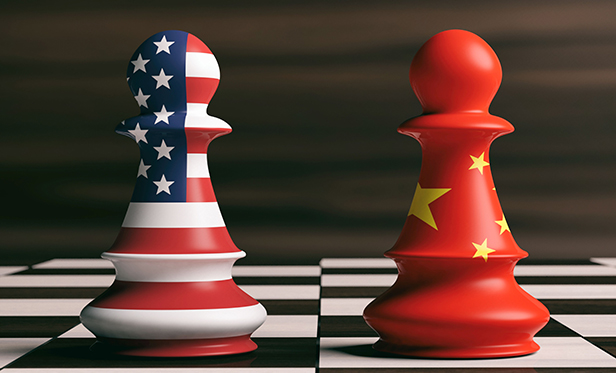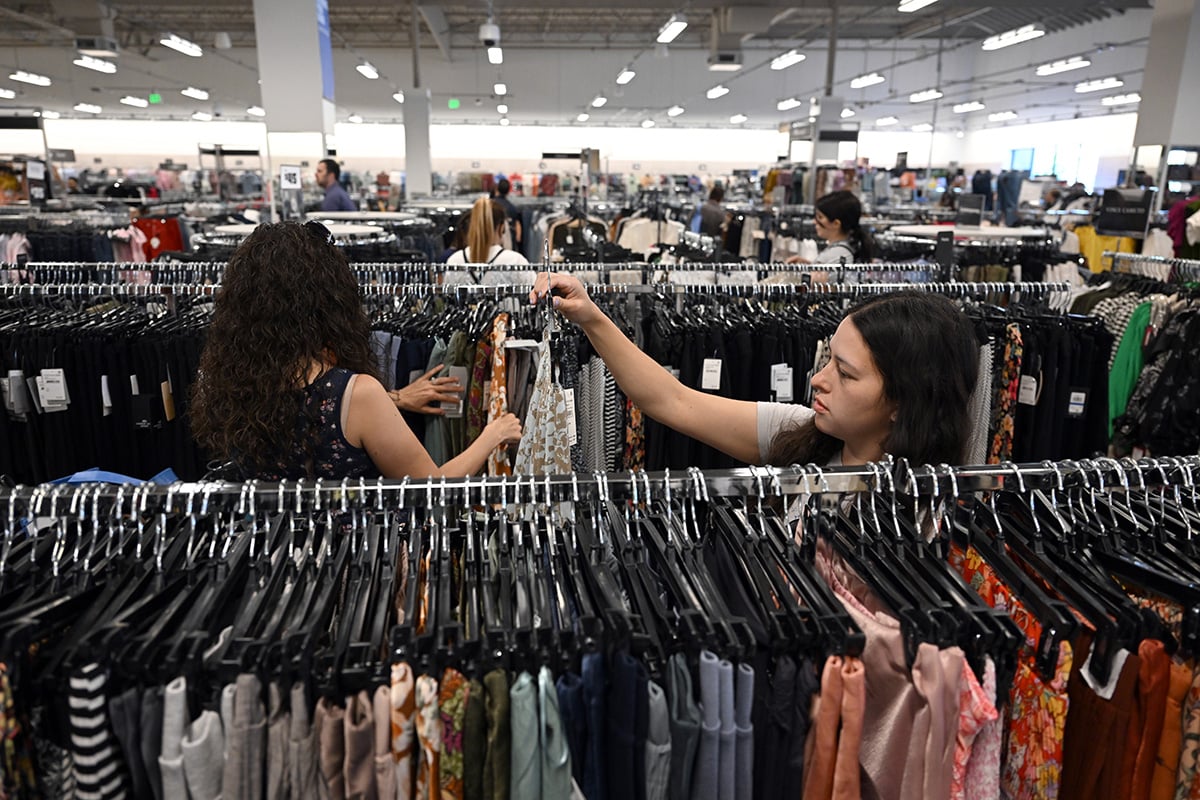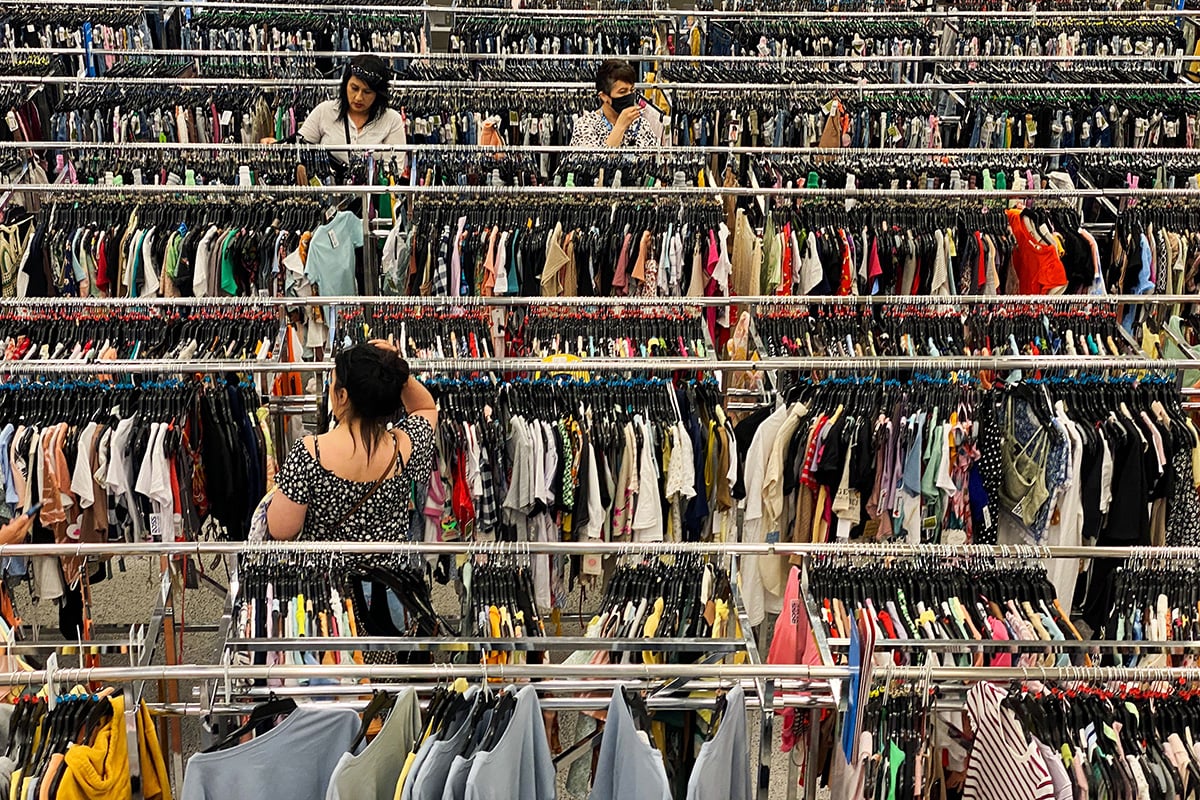
The U.S. and China have signaled hardening positions as theyprepare for high-stakes talks in Washington to try and avoid anescalation in a year-old trade war that has cast a long shadow overfinancial markets and the global economy.
|China's top trade envoy, Vice Premier Liu He, is due to land inthe U.S. capital on Thursday afternoon and go immediately intodiscussions with President Donald Trump's top negotiator, RobertLighthizer. U.S. tariffs on some $200 billion in Chinese goods areset to increase to 25 percent just hours later, in a move thateconomists and businesses say risks being the most economicallyconsequential of all of Trump's tariff moves so far.
|But the mood on both sides going into the talks appears to behardening, with Lighthizer calling members of Congress ahead of thediscussions to warn that a deal this week is unlikely, according topeople familiar with the conversations. While Trump on Wednesdayinsisted that Liu was coming to make a deal and dubbed him a “goodman,” he also roiled Asian markets again by saying China “broke thedeal” by backsliding on prior commitments, leading him to orderhigher tariffs.
|China has disputed Trump's characterization that the countryreneged. But it has also sent its own signals that a deal couldtake time.
|Unlike in some of his previous visits to Washington, Liu is nottraveling with the designation “special envoy” of Xi Jinping,according to people briefed on his trip. Chinese officials' publicstatements have also hardened in recent days, with Beijing vowingto retaliate against Trump's tariff increase and rejecting the ideathat it has reneged on any commitments made during the months oftough negotiations that have led to this week's showdown.
|“China is credible and honors its word, and that has neverchanged,” Commerce Ministry Spokesman Gao Feng told reporters onThursday.
|The Ministry of Commerce also announced it would soon publishdetails of new retaliatory tariffs.
|The souring mood caused global stocks to slump again. Losses inU.S. stocks accelerated, with the S&P 500 headed for the worstweek of the year. Some analysts believe a collapse in talks wouldtrigger a major selloff in risk assets.
|Republican Senator Marco Rubio in a tweet on Thursday praisedTrump's tough response. “After agreeing to a number of importantreforms, #Chinabacktracked on almost all of them & put the restinto the annex using vague language,” Rubio said.
|At a meeting on Tuesday, Trump and his trade team discussed thenext steps in the dispute and who should meet with Liu while he'sin Washington, people familiar with the internal deliberationssaid. The meeting became contentious when Treasury Secretary StevenMnuchin made his case for putting trust in Liu that China wouldcome back with a satisfactory offer to close the deal, theysaid.
|Liu has been treated to public Oval Office sit-downs with Trumpevery time he has traveled to the U.S. for trade talks in recentmonths. But the president and his advisers concluded that he shouldmeet with Liu only if the two sides make progress in thetalks, and that the decision would be made on short notice, thepeople said.
|The meeting also left Lighthizer—a longtime China hawk who hasadvocated raising pressure on Beijing further—in firmer command ofthe negotiations, with Mnuchin likely to play a smaller role thisround, said one person briefed on the situation.
|A Treasury spokesman disputed accounts of Mnuchin having asmaller role in the negotiations going forward or that he faced anycriticism within the administration this week, saying that Trump'strade team remains unified.
|Mnuchin and Lighthizer are both expected to have a workingdinner on Thursday with Liu, according to a person familiar withthe planning.
||
Increasing the Tariff Pressure
Lighthizer has, in recent days, been calling members ofCongress, telling them to brace for no deal and confirming that thedecision to increase tariffs on the $200 billion tranche ofproducts from China is firm, one person briefed on thedeliberations said. That is in part because, even as Liu's visit toWashington this week has been shortened, the agenda has grown morecomplicated.
|Trump's decision to raise tariffs came after China reneged onits prior commitment to enshrine a wide range of concessions inChinese law, according to U.S. officials.
|China's refusal to commit the deal's changes to law made itimpossible for a final agreement to be reached this week, peoplebriefed on the negotiations said. They noted that apart from themost recent rift in the talks, there are other major outstandingissues that still have to be resolved, such as the removal of theexisting tariffs between the two nations.
|Both sides still want a deal but can't get over the last fewdisputes, China's state-run Global Times wrote in aeditorial on Thursday, adding that China and the United States seemready to shift to the “fighting while talking” mode from theprevious truce agreed in December. Liu is scheduled to beWashington for two days of talks with U.S. officials, though somepeople familiar with Liu's plans said it could extend into theweekend.
|“We hope that the U.S. can work together with China and meeteach other halfway on the basis of mutual respect and equality,”Foreign Ministry spokesman Geng Shuang said Thursday inBeijing.
|
What Bloomberg economists say:
“It's difficult to make a high-confidence call. We think it'slikely the latest developments reflect an unusually messy andpublic final stage to negotiations. We can't rule out thepossibility something more serious has gone awry.” —TomOrlik, chief economist
|
At a rally in Florida on Wednesday, Trump said there was“nothing wrong with taking in $100 billion a year” in tariffs onChinese imports, in the absence of a trade deal. “They come intomorrow, and whatever happens, don't worry about it. It will workout. It always does,” he said. While Trump insists that China bearsthe cost of those tariffs, most economists say it is U.S. consumersand companies that are footing the bill.
|The tougher line from Trump has drawn praise from China hawksinside and outside the administration. “Welcome to Thunderdome—thelong economic war waged on America by the CCP has now been joinedby President Trump,” said Steve Bannon, Trump's former chiefstrategist.
|Data released on Thursday offered Trump a chance to claim histariff war is yielding the desired result. The U.S. trade deficitwith China decreased to the narrowest in almost three years asimports slowed and exports advanced.
||
Copyright 2019 Bloomberg. All rightsreserved. This material may not be published, broadcast, rewritten,or redistributed.
Complete your profile to continue reading and get FREE access to Treasury & Risk, part of your ALM digital membership.
Your access to unlimited Treasury & Risk content isn’t changing.
Once you are an ALM digital member, you’ll receive:
- Critical Treasury & Risk information including in-depth analysis of treasury and finance best practices, case studies with corporate innovators, informative newsletters, educational webcasts and videos, and resources from industry leaders.
- Exclusive discounts on ALM and Treasury & Risk events.
- Access to other award-winning ALM websites including PropertyCasualty360.com and Law.com.
*May exclude premium content
Already have an account? Sign In
© 2024 ALM Global, LLC, All Rights Reserved. Request academic re-use from www.copyright.com. All other uses, submit a request to [email protected]. For more information visit Asset & Logo Licensing.








